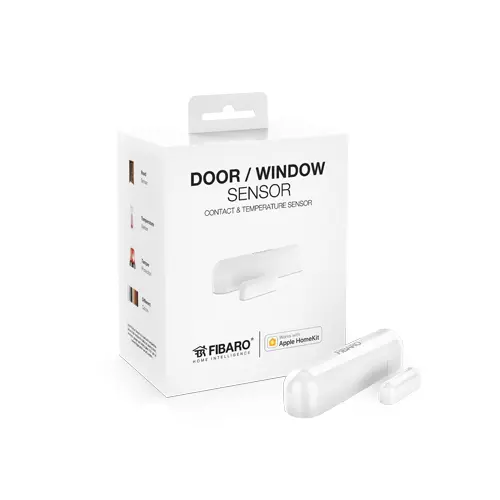Sensors & Actuators
Understanding Different Types of Sensors and Their Benefits
Sensors play a crucial role in modern security and automation systems, providing valuable data and triggering appropriate responses based on environmental changes. Here are various types of sensors commonly used in homes and office buildings, along with their benefits and advantages:

Smoke Sensor
Benefits: Smoke sensors detect the presence of smoke, alerting occupants to the possibility of a fire. Early detection can save lives by providing valuable time for evacuation and firefighting efforts.
Advantages: Installing smoke sensors helps ensure prompt response to fire emergencies, minimizing property damage and reducing the risk of injury or loss of life.

Gas Sensor
Benefits: Gas sensors monitor the concentration of gases such as carbon monoxide (CO) and natural gas, which can pose health hazards or fire risks if present in high levels.
Advantages: By detecting gas leaks or dangerous concentrations, gas sensors help prevent accidents, such as carbon monoxide poisoning or gas explosions, enhancing safety for occupants.

Humidity Sensor
Benefits: Humidity sensors measure the moisture content in the air, helping to prevent mold growth, protect electronic devices, and maintain indoor air quality.
Advantages: Installing humidity sensors enables effective humidity control, reducing the risk of mold-related health issues, preserving property integrity, and enhancing occupant comfort.

Motion Sensor
Benefits: Motion sensors detect movement within a designated area, commonly used by security alarm systems, triggering alarms or activating lights to deter intruders or alert occupants to potential threats.
Advantages: Installing motion sensors enhances security by providing early detection of unauthorized entry or suspicious activity, reducing the risk of burglary or vandalism.

Temperature Sensor
Benefits: Temperature sensors measure ambient temperature levels, helping to maintain comfortable indoor conditions and prevent damage to sensitive equipment or materials.
Advantages: By monitoring temperature fluctuations, temperature sensors enable efficient HVAC system control, energy conservation, and early detection of heating or cooling system malfunctions.

Light Sensor
Benefits: Light sensors detect changes in ambient light levels, automatically adjusting artificial lighting or triggering other devices to conserve energy and enhance security.
Advantages: By optimizing lighting usage based on natural light conditions, light sensors contribute to energy savings, reduce electricity costs, and create a more sustainable environment.

Magnetic Sensor
Benefits: Magnetic sensors detect changes in magnetic fields, commonly used in door and window sensors for security alarm systems to detect unauthorized entry.
Advantages: Installing magnetic sensors provides reliable intrusion detection, alerting occupants to potential security breaches and deterring burglars or trespassers.

Dimmer Actuator
Benefits: The Dimmer Actuator enables precise control of lighting levels in your home or office. It allows users to adjust light intensity to create the perfect ambiance, conserve energy, and extend the lifespan of lighting fixtures.
Advantages: Installing a Dimmer Actuator enhances comfort by offering customizable lighting scenarios, improves energy efficiency by reducing unnecessary power usage, and can be integrated with smart home systems for remote control and automation.

Single/Double Switch
Benefits: The Single/Double Switch allows users to remotely control electrical devices and lighting through a connected smart home system. It supports automation, providing on-demand control of various appliances or lights.
Advantages: Installing a Single/Double Switch enhances convenience by enabling remote operation of electrical devices, increases energy savings through automation, and provides enhanced control over home or office appliances from a centralized interface or mobile app.
Benefits and Advantages of Installing Sensors/Actuators in Your Home or Office Building:
- Enhanced Safety and Security: Installing sensors enhances safety and security by detecting potential hazards, such as fire, gas leaks, or intruders, and triggering appropriate responses to mitigate risks.
- Improved Energy Efficiency: Sensors enable intelligent control of lighting, heating, ventilation, and air conditioning systems, optimizing energy usage, reducing utility costs, and promoting sustainability.
- Early Warning and Detection: Sensors provide early warning of environmental changes or security threats, enabling prompt intervention and minimizing damage to property and assets.
- Convenience and Automation: Automated responses triggered by sensors enhance convenience and streamline operations, reducing manual intervention and enhancing overall efficiency.
- Customizable Solutions: Sensors are highly customizable, allowing users to tailor their functionality to specific needs and preferences, providing flexibility and scalability for diverse applications.
- Peace of Mind: By installing sensors, occupants gain peace of mind knowing that their home or office building is equipped with advanced monitoring and protection systems, enhancing overall comfort and well-being.
Sensors play a critical role in ensuring safety, security, and efficiency in homes and office buildings. By investing in sensor technology, occupants can enjoy the benefits of early detection, automated control, and peace of mind, creating safer, more comfortable, and energy-efficient environments.
Contact us today to discuss your individual needs.




